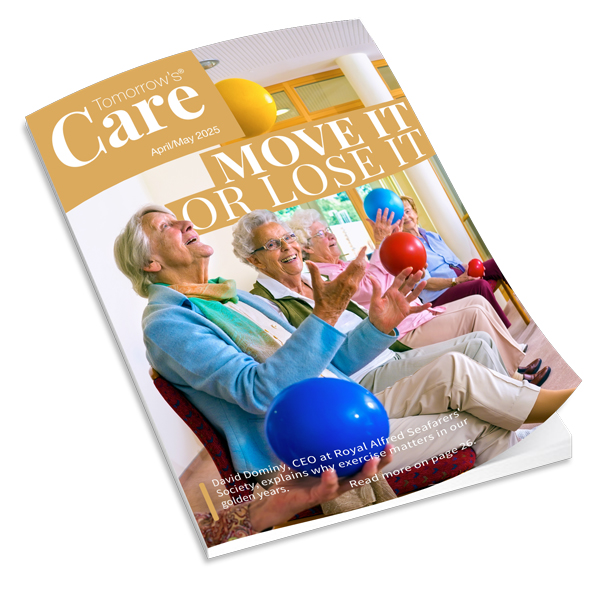You are here
- Home
- >
- Medication
- >
- CQC Survey Reveals ‘No Notable Improvement’ in People’s Ou
CQC Survey Reveals ‘No Notable Improvement’ in People’s Out-Of-Hospital Mental Health Care

Published on 10/11/2015
A Care Quality Commission survey of over 13,000 people who were treated and cared for in the community for their mental health problems has shown ‘no notable improvement’ in the last year, and in some cases, a slightly higher proportion of people have reported poor experiences.
The regulator is now calling for NHS trusts to reflect on their findings and improve care provision.
The annual survey assessed people’s experiences of the care and support they receive from community mental health services run by NHS trusts in England, including in clinics and in their own homes, for conditions ranging from mild depression to psychosis.
The survey does not cover the care people have received for their mental health problems from general practices.
The survey asked for respondents views on aspects of their care, such as whether they felt they were treated with dignity and respect and whether they felt involved in decisions about their care.
When people were asked to rate their overall experience of their community mental health care on a scale of 0 to 10, a higher proportion of people reported a poorer experience compared to last year; 28% rated it as five or lower, compared to 25% in 2014.
Also, a slightly higher proportion of people than last year reported that they did not feel listened to by staff (7%, up from 5% in 2014), did not feel they were given enough time to discuss their needs and treatments (11% up from 9% in 2014), and did not feel they were treated with dignity and respect (7%, up from 6% in 2014).
While the survey has not shown improvement from last year’s results, there are many examples where people have responded to positively about their care and treatment.
96% of people reported that they knew how to contact the person in charge of organising their care and services, if they have a concern about their care and 70% reported that they ‘definitely’ felt listened to by the person or people they saw.
78% of people on long term medication reported that they had had this reviewed, although this means that 22% did not and 73% reported that they were ‘always’ treated with respect and dignity.
Dr Paul Lelliott Deputy Chief Inspector of Hospitals said: "Overall it is disappointing that there has been no notable improvement from last year’s survey. In particular, the fact that over a quarter of people reported a poor experience of their care is worrying and must be acted on.
"Community mental health services play a vital role in supporting people with their mental health problems without needing to stay in hospital. It is imperative that the NHS gets this right.
"We urge all NHS trusts and in particular those that have performed poorly to reflect on what the survey tells them about what their patients think of their services act on the findings.
"We will consider the results of this survey in our inspections so that we can be confident that people receive the safe, high-quality and compassionate care they deserve."
The community mental health survey is conducted every year by CQC. It represents the experiences of over 13,000 people who received specialist care or treatment for a mental health condition in 55 NHS trusts in England between September and November 2014.
The regulator is now calling for NHS trusts to reflect on their findings and improve care provision.
The annual survey assessed people’s experiences of the care and support they receive from community mental health services run by NHS trusts in England, including in clinics and in their own homes, for conditions ranging from mild depression to psychosis.
The survey does not cover the care people have received for their mental health problems from general practices.
The survey asked for respondents views on aspects of their care, such as whether they felt they were treated with dignity and respect and whether they felt involved in decisions about their care.
When people were asked to rate their overall experience of their community mental health care on a scale of 0 to 10, a higher proportion of people reported a poorer experience compared to last year; 28% rated it as five or lower, compared to 25% in 2014.
Also, a slightly higher proportion of people than last year reported that they did not feel listened to by staff (7%, up from 5% in 2014), did not feel they were given enough time to discuss their needs and treatments (11% up from 9% in 2014), and did not feel they were treated with dignity and respect (7%, up from 6% in 2014).
While the survey has not shown improvement from last year’s results, there are many examples where people have responded to positively about their care and treatment.
96% of people reported that they knew how to contact the person in charge of organising their care and services, if they have a concern about their care and 70% reported that they ‘definitely’ felt listened to by the person or people they saw.
78% of people on long term medication reported that they had had this reviewed, although this means that 22% did not and 73% reported that they were ‘always’ treated with respect and dignity.
Dr Paul Lelliott Deputy Chief Inspector of Hospitals said: "Overall it is disappointing that there has been no notable improvement from last year’s survey. In particular, the fact that over a quarter of people reported a poor experience of their care is worrying and must be acted on.
"Community mental health services play a vital role in supporting people with their mental health problems without needing to stay in hospital. It is imperative that the NHS gets this right.
"We urge all NHS trusts and in particular those that have performed poorly to reflect on what the survey tells them about what their patients think of their services act on the findings.
"We will consider the results of this survey in our inspections so that we can be confident that people receive the safe, high-quality and compassionate care they deserve."
The community mental health survey is conducted every year by CQC. It represents the experiences of over 13,000 people who received specialist care or treatment for a mental health condition in 55 NHS trusts in England between September and November 2014.
Related News
Categories
- CQC ratings
- Care home news
- Care jobs
- Care planning
- Care sector awards
- Care sector events
- Care sector news
- Care staff
- Charity
- Cleaning & Hygiene
- Construction
- Dementia
- Disability
- Entertainment
- Finance
- Fitness
- Food & Drink
- Fundraising
- Furniture
- Health & Safety
- Healthcare
- Hospice & Palliative Care
- Hospitals
- Industry Comment
- Interiors
- Laundry
- Legal
- Leisure
- Medication
- Mental Health
- Mobility
- New appointments
- PPE
- Products
- Property
- Recruitment
- Relationships
- Research
- Safeguarding
- Security
- Services
- Social care
- Sustainability
- Technology
- Training
- Transport
- Uniforms
- Waste
- Wearables

























